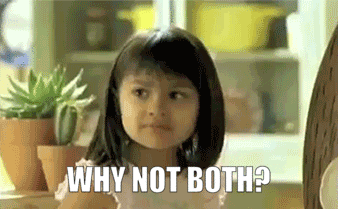I appreciate fiction, but I almost always read nonfiction. It’s probably because I typically choose the books on topics I’m interested in, and I want to learn about them. But I also love the way a great nonfiction writer can weave a narrative so strong that it’s just as much literature as it is journalism.
Some of my favorite examples of nonfiction that do this well: Soul Full of Coal Dust, Toms River, Desert Solitaire (Abbey can be problematic, though, so be warned), The Pine Barrens, This Land, and on and on.
I guess I’m kinda stuck in the environment/nature section these days!
I’m almost always reading at least one of both, but usually two nonfiction and one fiction. Basically: have two topics for learning to avoid monotony; and have a fiction around for pure diversion.
Currently I’m working on:
Fiction:
- House of Leaves by Mark Z. Danielewski (rereading)
Nonfiction:
- Solidarity Economics: Why Mutuality and Movements Matter by Chris Brenner and Manuel Pastor
- Democracy and Economic Planning by Pat Devine

I try to read a healthy mix of both. At any given time, I am usually reading at least one non-fiction and one fiction book simultaneously. These days I have been reading a lot of history and fantasy/science fiction.
What good history non fiction have you read recently? I’m always in the market for more
Sorry for the late reply, but I recently read Pacific Crucible by Ian Toll about WWII at sea in the Pacific. It is an excellent narrative telling of the entry of the United States into World War II with plenty of background information about naval sea power and the wide reach of Alfred Thayer Mahan’s book, The Influence of Sea Power Upon History. He explains that naval battle strategies that had not changed significantly for hundreds of years were forced to be reconsidered after the rise of the airplane. From there, we arrive at the Japanese attack on Pearl Harbor, which Toll paints in vivid detail. Like the subtitle says, Toll very closely follows the “War at Sea in the Pacific, 1941-1942” without a single misstep. I thoroughly enjoyed it.
I almost always choose fiction because I like getting lost in imaginary worlds.
Mostly fiction. Studying or working full time means I read to escape, unless it’s a textbook. There are many non-fiction books I’d like to try, but I never have the energy.
I read non-fiction on my phone at work or on the go and fiction mostly with physical books. I enjoy both and would have a hard time to decide if I could only have one.
Fiction before bed, non-fiction in the morning.
Fiction has always been my preference: I started reading to find my own world to take refuge in, when I was young, and fantasy, specifically, really fulfilled that need. Escapism is the main reason I still read books. I never really got into historical biographies, however I do love a good philosophy or neurolinguistics book if I am in the mood to learn something new.
I consider reading a cultivating activity to enrich one’s knowledge on certain topics. This is why I, like you, find myself reading predominantly nonfiction.
Fiction, however, can be utilized to disclose valuable information as much as to offer leisure. One novel I have in mind is The Elegance of the Hedgehog by Muriel Barbery, which quite explicitly tackles philosophical and social questions via the protagonists’ journal entries.
Agreed. Sometimes fiction reflects reality very well, in its own unique way. I used to be a journalist, and I recall some of my colleagues wondering whether they could do more good by moving to fiction and taking on larger issues in that medium.
deleted by creator
Nonfiction’s scope is way larger than biography.
I use reading as a form of escapism. If it’s not fiction then i feel like i’m not escaping






